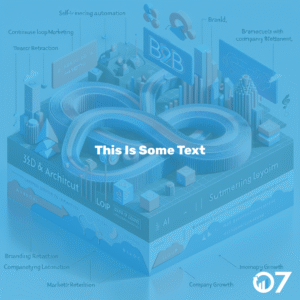Introduction to machine learning email marketing
Machine learning email marketing helps businesses grow revenue by personalising messages to customers. It uses data to send the right content at the right time without needing a data science team.
This approach improves how businesses connect with their audience and increases sales through smarter email campaigns.
How machine learning enhances email marketing personalisation
Machine learning algorithms analyse customer data to create personalised email content. This means each recipient gets messages tailored to their interests and behaviour. Personalised emails feel more relevant and encourage customers to engage.
By using customer segmentation, businesses can group users based on preferences or past actions. This helps send targeted offers, boosting the chances of a sale. Machine learning also adapts over time, improving personalisation as it learns from new data.
Optimising email send times with machine learning
Sending emails at the best time increases the chance customers will open and read them. Machine learning studies when recipients are most active and predicts optimal send times for each person. This optimising email send times leads to better email engagement metrics.
Instead of sending all emails at once, campaigns are spread out to match each customer’s habits. This reduces the risk of messages being ignored or lost in busy inboxes.
Predictive email marketing and lead scoring
Predictive email marketing uses machine learning to forecast customer behaviour. It predicts who is likely to buy or respond, helping businesses focus on the most promising leads. Predictive lead scoring ranks contacts by their likelihood to convert.
This approach saves marketing teams time and effort by targeting customers more effectively. It also improves return on investment by sending tailored offers to those most interested.
Email marketing automation powered by machine learning
Marketing automation tools use machine learning to create dynamic email workflows. These workflows send the right messages based on customer actions, such as browsing a website or abandoning a shopping cart. Automation ensures timely follow-ups without manual effort.
Machine learning email marketing allows small businesses to implement these strategies without needing expert data scientists. Many platforms offer easy integration with existing CRM systems to use data-driven marketing strategies effectively.
Real-world examples
- A clothing retailer uses machine learning to send personalised product recommendations. This led to a 20% increase in email-driven sales.
- An online bookstore optimised email send times, improving open rates by 15% and click-through rates by 10%.
- A software company applied predictive lead scoring to focus on high-potential customers, increasing conversions by 25%.
What to do next
Businesses wanting to improve their email marketing should consider machine learning tools. Start by integrating your CRM data and choosing platforms that offer automation and personalisation features. This approach can boost revenue without needing a dedicated data science team.
For help with implementing machine learning email marketing, explore our email marketing services and see how we can support your goals.
Frequently asked questions
How does machine learning improve email marketing?
Machine learning improves email marketing by analysing customer data to personalise content, predict behaviour, and optimise send times. This leads to better engagement and higher sales.
What are the benefits of personalising emails with machine learning?
Personalised emails feel more relevant to customers, increasing open and click rates. Machine learning makes personalisation more accurate and scalable.
Can small businesses use machine learning for email marketing without experts?
Yes, many marketing platforms offer easy-to-use machine learning features. Small businesses can apply these tools without needing a data science team.
Encourage further engagement via our blog or contact us via email or telephone 01702 410663





